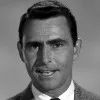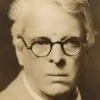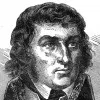LADY MACBETH: Look like th’ innocent flower,
But be the serpent under ‘t.William Shakespeare (1564-1616) English dramatist and poet
Macbeth, Act 1, sc. 5, l. 75ff (1.5.75-76) (1606)
(Source)
Quotations about:
innocence
Note not all quotations have been tagged, so Search may find additional quotes on this topic.
GALE: Childhood is Last Chance Gulch for happiness. After that, you know too much.
Tom Stoppard (b. 1937) Czech-English playwright and screenwriter
Where Are They Now? (1968)
(Source)
You know growing old is like being increasingly penalized for a crime you haven’t committed.
When the judgment day comes, civilization will have an alibi: “I never took a human life, I only sold the fellow the gun to take it with.”
A cheerful temper joined with innocence will make beauty attractive, knowledge delightful and wit good-natured. It will lighten sickness, poverty and affliction, convert ignorance into an amiable simplicity, and render deformity itself agreeable.
When we are children we seldom think of the future. This innocence leaves us free to enjoy ourselves as few adults can. The day we fret about the future is the day we leave our childhood behind.
Patrick Rothfuss (b. 1973) American author
The Name of the Wind, ch. 12 “Puzzle Pieces Fitting” (2007)
(Source)
The truly innosent are thoze who not only are guiltless themselfes, but who think others are.
[The truly innocent are those who not only are guiltless themselves, but who think others are.]
Josh Billings (1818-1885) American humorist, aphorist [pseud. of Henry Wheeler Shaw]
Everybody’s Friend, Or; Josh Billing’s Encyclopedia and Proverbial Philosophy of Wit and Humor, “Plum Pits” (1874)
(Source)
A time-honored concept of Anglo-Saxon justice declares that a man is innocent until proven guilty. I believe that in a democratic society a man is similarly loyal until proven disloyal. No testaments of faith, no protestations of affection for his native land, and no amount of signatures will prove a bloody thing — one way or the other — as to a man’s patriotism or lack thereof.
Rod Serling (1924-1975) American screenwriter, playwright, television producer, narrator
Speech, Moorpark College, Moorpark, California (3 Dec 1968)
(Source)
Serling had refused to sign a loyalty oath before speaking, giving up the fee for his appearance.
The innocent and the beautiful
Have no enemy but time.William Butler Yeats (1865-1939) Irish poet and dramatist
“In Memory of Eva Gore-Booth and Con Markiewicz” (1927)
(Source)
There is no such thing as collective guilt or collective innocence; guilt and innocence make sense only if applied to individuals.
Hannah Arendt (1906-1975) German-American philosopher, political theorist
“Personal Responsibility Under Dictatorship” (1964)
(Source)
A man is a god in ruins.
Ralph Waldo Emerson (1803-1882) American essayist, lecturer, poet
“Nature,” ch. 8, Nature: Addresses and Lectures (1849)
(Source)
It had snowed in the night, and the world looked very clean, which I knew it not to be. But illusion is nice sometimes.
Oh! To be a child again. My only treasures, bits of shell and stone and glass. To love nothing but maple sugar. To fear nothing but a big dog. To go to sleep without dreading the morrow. To wake up with a shout. Not to have seen a dead face. Not to dread a living one. To be able to believe.
It’s innocence when it charms us, ignorance when it doesn’t.
Mignon McLaughlin (1913-1983) American journalist and author
The Second Neurotic’s Notebook, ch. 10 (1966)
(Source)
Trust no friend without faults,
And love a maiden, but no angel.[Trau keinem Freunde sonder Mängel,
Und leib’ ein Mädchen, kienem Engel.]
HAWKEYE: War isn’t Hell. War is war, and Hell is Hell. And of the two, war is a lot worse.
FR. MULCAHEY: How do you figure, Hawkeye?
HAWKEYE: Easy, Father. Tell me, who goes to Hell?
FR. MULCAHEY: Sinners, I believe.
HAWKEYE: Exactly. There are no innocent bystanders in Hell. War is chock full of them — little kids, cripples, old ladies. In fact, except for some of the brass, almost everybody involved is an innocent bystander.
Necessity can make a doubtful action innocent, but it cannot make it commendable.
[La nécessité peut rendre innocente une action douteuse ; mais elle ne saurait la rendre louable.]
Joseph Joubert (1754-1824) French moralist, philosopher, essayist, poet
Pensées [Thoughts], ch. 9 “De la Sagesse, de la Vertu, etc. [On Wisdom and Virtue],” ¶ 20 (1850 ed.) [tr. Auster (1983), 1808]
(Source)
(Source (French)). Alternate translations:Necessity may render a doubtful act innocent, but it cannot make it praiseworthy.
[tr. Attwell (1896), ¶ 133]Necessity may render a doubtful action innocent; but it cannot make it praiseworthy.
[tr. Lyttelton (1899), ch. 8, ¶ 16]
HENRY: What stronger breastplate than a heart untainted?
Thrice is he armed that hath his quarrel just,
And he but naked, though locked up in steel,
Whose conscience with injustice is corrupted.
It is more important that innocence be protected than it is that guilt be punished, for guilt and crimes are so frequent in this world that they cannot all be punished. But if innocence itself is brought to the bar and condemned, perhaps to die, then the citizen will say, “whether I do good or whether I do evil is immaterial, for innocence itself is no protection,” and if such an idea as that were to take hold in the mind of the citizen that would be the end of security whatsoever.
John Adams (1735-1826) American lawyer, Founding Father, statesman, US President (1797-1801)
(Attributed)
Cited in some cases as the closing argument while defending the British Soldiers accused of killing 5 colonists in the "Boston Massacre" (usually given as "Argument in Defense of the Soldiers in the Boston Massacre Trials" (Dec 1770)), but I did not find it in accounts of that defense.
HAMLET: Be thou as chaste as ice, as pure as snow, thou shalt not escape calumny.
William Shakespeare (1564-1616) English dramatist and poet
Hamlet, Act 3, sc. 1, l. 147ff (3.1.147-148) (c. 1600)
(Source)
“It needs but one foe to breed a war, not two, Master Warden,” answered Éowyn. “And those who have not swords can still die upon them.”
J.R.R. Tolkien (1892-1973) English writer, fabulist, philologist, academic [John Ronald Reuel Tolkien]
The Lord of the Rings, Vol. 3: The Return of the King, Book 6, ch. 5 “The Steward and the King” (1955)
(Source)
























